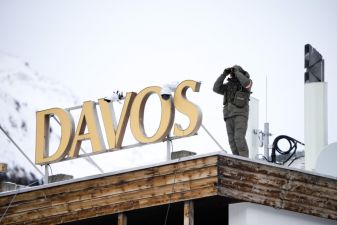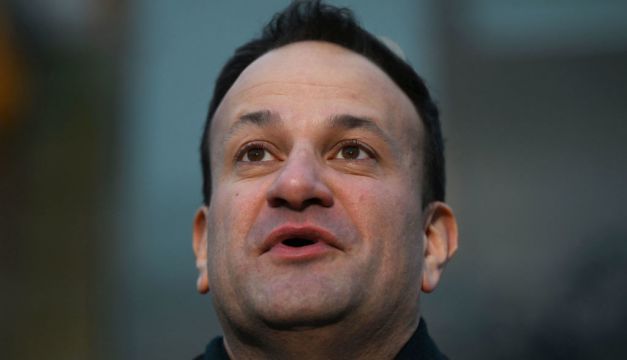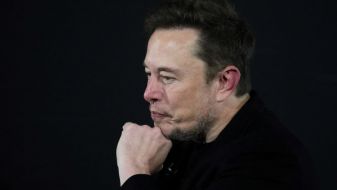The prospect of imminent global recession cast a long shadow over Davos on Monday as participants began to gather for the opening of the World Economic Forum's annual meeting.
The Taoiseach will be among the elites travelling to the Swiss alpine town this week.
Leo Varadkar joins 30 European heads of states and governments attending the WEF, according to organisers of the event, which will play host to more than 2,700 politicians, business leaders, academics and officials from international organisations.
Ahead of the gathering, two-thirds of private and public sector chief economists surveyed by the WEF expect a global recession this year, with some 18 per cent considering it "extremely likely" – more than twice as many as in the previous survey conducted in September 2022.
"The current high inflation, low growth, high debt and high fragmentation environment reduces incentives for the investments needed to get back to growth and raise living standards for the world's most vulnerable," WEF managing director Saadia Zahidi said in a statement accompanying the survey results.
The WEF's survey was based on 22 responses from a group of senior economists drawn from international agencies including the International Monetary Fund, investment banks, multinationals and reinsurance groups.
Meanwhile, a survey of CEO attitudes by PwC released in Davos on Monday was the gloomiest since the "Big Four" auditor launched the poll a decade ago, marking a significant shift from optimistic outlooks in 2021 and 2022.
The World Bank last week slashed its 2023 growth forecasts to levels close to recession for many countries as the impact of central bank rate hikes intensifies, Russia's war in Ukraine continues, and the world's major economic engines sputter.
Definitions of what constitutes recession differ around the world but generally include the prospect of shrinking economies, possibly with high inflation in a "stagflation" scenario.
Inflation expectations
On inflation, the WEF survey saw large regional variations: the proportion expecting high inflation in 2023 ranged from just 5 per cent for China to 57 per cent for Europe, where the impact of last year's rise in energy prices has spread to the wider economy.
A majority of the economists see further monetary policy tightening in Europe and the United States (59 per cent and 55 per cent, respectively), with policy-makers caught between the risks of tightening too much or too little.
"It is clear that there is a massive drop in demand, inventories are not clearing up, the orders are not coming through," Yuvraj Narayan, deputy chief executive and chief financial officer of Dubai-based global logistics company DP World told Reuters.
"There are far too many constraints imposed. It is no longer a free-flowing global economy and unless they find the right solutions it will only get worse," he said, adding the group expects freight rates to drop by between 15 and 20 per cent in 2023.
A common concern among many Davos participants was the sheer level of uncertainty for the year ahead – from the duration and intensity of the Ukraine war through to the next moves of top central banks looking to lower inflation with deep rate hikes.

The chief financial officer of one US publicly traded company told Reuters he was preparing widely-varying scenarios for 2023 in light of economic uncertainty – in large part related to how interest rates will trend this year.
While there were few silver linings on the horizon, some noted that an all-out recession could give pause to the policy-tightening plans of the US Federal Reserve and other major central banks that is making borrowing increasingly dear.
"I want the outlook to become a little weaker so that the Fed rates start going down and that whole sucking-out of liquidity by global central banks eases," Sumant Sinha, chairman and chief executive of Indian clean energy group ReNew Power, told Reuters.
"That will benefit not just India but globally," he said, adding the current round of rate hikes was making it dearer for clean energy companies to fund their capital-intensive projects.







